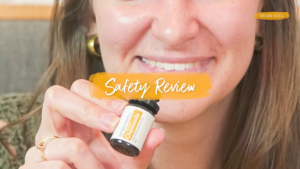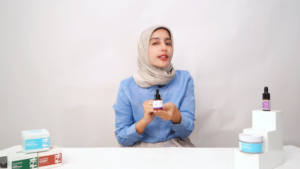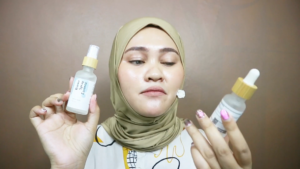Choosing safe and quality beauty products is crucial for maintaining healthy skin. Firstly, read product labels carefully to understand ingredients and avoid harmful chemicals like parabens and sulfates. Secondly, opt for products with natural or organic ingredients known for their skin-nourishing properties. Thirdly, consider your skin type and specific concerns to select products formulated for your needs, whether it’s sensitive skin, acne-prone skin, or anti-aging solutions. Finally, research brands with a reputation for safety and efficacy, and check for certifications or endorsements from dermatologists or skincare experts. These steps ensure your skincare routine promotes skin health without compromising on safety.
Understanding Product Labels
Understanding product labels is essential when choosing safe and quality beauty products for healthy skin. Take time to read and decipher ingredient lists to identify potential allergens or irritants. Look for labels that indicate products are free from harmful chemicals like parabens, phthalates, and artificial fragrances. Opt for products with natural or organic certifications, as they often contain fewer synthetic ingredients and are gentler on sensitive skin. By being label-savvy, you can make informed choices that support your skin’s health and well-being.
Choosing Suitable Ingredients
Choosing beauty products with suitable ingredients is key to maintaining healthy skin. Look for ingredients known for their beneficial properties, such as hyaluronic acid for hydration, vitamin C for brightening, or niacinamide for calming and soothing effects. Consider your skin type and specific concerns—whether it’s dryness, acne, or aging—and select products formulated to address these issues effectively. Avoid harsh chemicals and opt for gentle, non-comedogenic formulas that won’t clog pores or cause irritation, ensuring your skin receives the care it needs.
- Identify Skin Needs Begin by identifying your skin type and specific concerns, such as dryness, acne, or aging. Choose ingredients like hyaluronic acid for hydration, salicylic acid for acne-prone skin, or retinol for anti-aging benefits based on your skin’s needs.
- Look for Beneficial Properties Seek ingredients known for their beneficial properties. Examples include antioxidants like vitamin C for brightening, soothing agents like aloe vera for sensitive skin, or peptides for firming and smoothing effects.
- Avoid Harsh Chemicals Avoid products containing harsh chemicals such as parabens, sulfates, and artificial fragrances. Opt instead for gentle formulations with natural or organic ingredients that nourish and protect your skin without causing irritation or long-term damage.
Researching Brand Reputation
Researching the reputation of beauty brands is crucial for ensuring product quality and safety. Look for brands with a commitment to transparency, ethical sourcing, and rigorous testing processes. Check customer reviews and testimonials to gauge user experiences and satisfaction levels. Brands endorsed by dermatologists or skincare experts often adhere to higher standards of formulation and manufacturing practices. By choosing reputable brands with a track record of delivering safe and effective skincare solutions, you can confidently incorporate products into your routine that promote healthy, radiant skin.
- Check for Transparency Look for brands that prioritize transparency in their sourcing and manufacturing processes. Transparent brands often disclose ingredient sources, production methods, and safety testing practices, ensuring accountability and consumer trust.
- Review Customer Feedback Read customer reviews and testimonials to gauge satisfaction levels and reliability. Positive feedback indicates consistent product quality and effectiveness, while negative reviews may highlight issues with formulation or customer service.
- Seek Endorsements and Certifications Look for endorsements from dermatologists, skincare professionals, or certifications from reputable organizations. Endorsements and certifications validate a brand’s commitment to safety, efficacy, and adherence to industry standards, helping you make informed decisions about skincare products.
Consulting with Skincare Professionals
Consulting with skincare professionals can provide valuable insights into choosing the right beauty products for your skin. Dermatologists or estheticians can assess your skin type, identify specific concerns, and recommend suitable products tailored to your needs. They can also offer guidance on ingredients to avoid and provide personalized skincare routines to achieve optimal results. Seeking professional advice ensures that you invest in products that not only enhance your skin’s health but also prevent potential adverse reactions or long-term skin issues.








